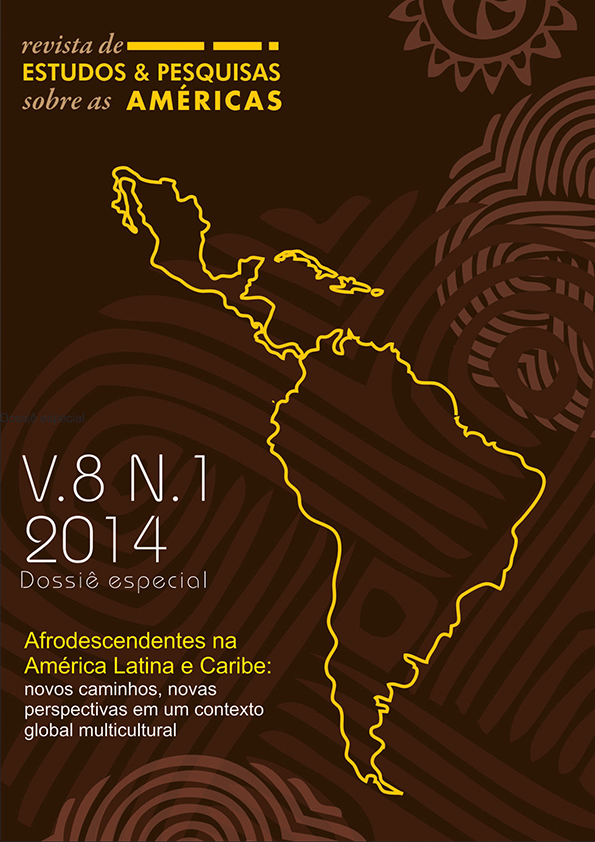Negociando “Negritude” em um Estado Multicultural: Política Creole e Identidade na Nicarágua
Abstract
Esse artigo examina como os Creoles afrodescendentes estão atualmente reconfigurando suas identidades coletivas no âmbito do multiculturalismo nicaraguense. São examinadas questões como: o que significa ser atualmente Creole, negro ou afrodescendente na Nicarágua, um Estado que se proclama Multicultural? Como a negritude é negociada e vivenciada em um Estado onde o multiculturalismo se tornou uma política oficial, mas onde, historicamente, hierarquia racial e racismo não foram reconhecidos? Como essas identidades são negociadas e reconfiguradas em um contexto de lutas por justiça e igualdade? Hoje na Nicarágua, nação historicamente retratada como sendo majoritariamente mestiça ou indo-hispânica, muitos creoles anglófonos estão afirmando uma forte identidade negra racial, imaginada em termos de conexões transnacionais com a diáspora africana, incluindo com o passado africano e a ancestralidade afro-caribenha. Eu argumento no artigo que a atual ênfase na negritude, enquanto identidade creole, está conectada à s mudanças do modelo de multiculturalismo nicaraguense, sobretudo a implementação de políticas específicas de combate ao racismo e a discriminação racial, uma dinâmica que ilustra a relação dialética entre direitos e identidades.
---
Negotiating "Blackness" on a Multicultural State: Politics and Creole Identity in Nicaragua
This article examines how Afro-descendant Creoles are currently reimagining their collective identities in Nicaragua in the context of multiculturalism. It examines questions such as: what does it means to be Creole, and/or black or Afro-descendant in Nicaragua today in the context of a self-proclaimed multicultural state? How is blackness negotiated and lived in a state where multiculturalism has become official state policy, but where, historically, racial hierarchy and racism have not been recognized? How are these identities negotiated and remade in the context of struggles for justice and equality? In the context a Nicaraguan nation that has historically been portrayed as overwhelmingly mestizo or Indo- Hispanic, many English-speaking Creoles today are asserting a strong black racial group identity imagined in terms of transnational connections to the African diaspora, including to an African past and Afro-Caribbean ancestry. I argue that the current emphasis on blackness in conceptions of Creole identity are connected to changes to Nicaragua’s model of multiculturalism, specifically the implementation of specific policies to combat racism and racial discrimination, a dynamic that illustrates the dialectical relationship between rights and identities.
keywords: blackness, nicaragua, creole communities.
Downloads
Downloads
Published
How to Cite
Issue
Section
License
The published material is the property of the Journal, and may be reproduced in whole or in part with indication of the source.
Copyright: Authors will be responsible for obtaining the copyright of the material used. Authors who publish in this journal agree to the following terms:
a)Authors retain the copyright and grant the journal the right of first publication, with the work simultaneously licensed under
the Creative Commons Attribution License which allows the sharing of work with acknowledgment of authorship and initial publication in this journal.
b) Authors are authorized to take additional contracts separately, for non-exclusive distribution of the version of the work published in this journal (eg, publish in institutional repository or as a book chapter), with acknowledgment of authorship and initial publication in this journal.
c) Authors are allowed and encouraged to publish and distribute their work online (eg in institutional repositories or on their personal page) at any point before or during the editorial process, as this can generate productive changes as well as increase the impact and the citation of the published work (See The Effect of Free Access).
















